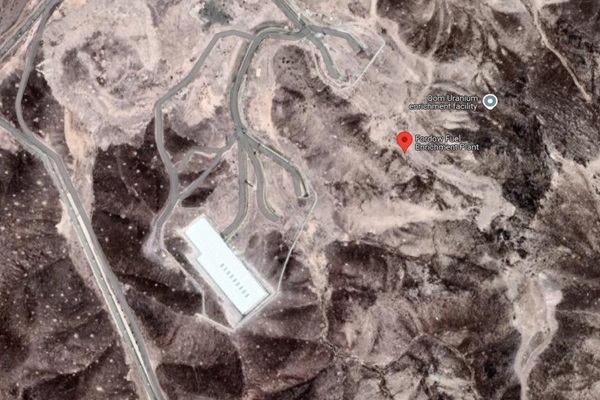.png)
US Joins War In Middle East, Trump Warns Tehran Against Retaliation
US joins Israel in bombing Iran’s nuclear sites, as Trump warns of more strikes and Tehran retaliates with fresh missile attacks.


Arshad Hussain is a senior journalist. He is currently the Managing Editor at BasisPoint Insight. When not tracking headlines, he pursues his passions for birding and photography.
June 22, 2025 at 7:09 AM IST
The United States has joined Israel in striking Iran, targeting three nuclear facilities and claiming to have destroyed them. “A short time ago, the US military carried out massive precision strikes on three key nuclear facilities of the Iranian regime, Fordow, Natanz, and Isfahan,” President Donald Trump said in a speech from the White House.
He described the operation as a “spectacular military success,” stating the sites were “completely and totally obliterated.” Trump confirmed the use of B 2 stealth bombers armed with bunker-buster bombs, along with Tomahawk missiles, and noted that all aircraft and crew “have safely exited Iranian airspace.”
“Iran must now make peace or face further military action,” Trump warned. He warned of greater tragedy if Iran retaliated, promising further strikes if peace was not pursued.
Just a few hours after Trump’s address, Iran launched a barrage of missiles on Israel. Explosions were reported in several Israeli cities, with at least 16 people injured in the fresh missile barrage.
Israel launched the initial strikes on Iranian nuclear sites and military personnel a week ago, and both sides have since been trading blows. The United States had been weighing its participation until now.
The strikes mark a major escalation and deepen US involvement alongside Israel.
For long, Israel’s approach to Iran has rested on two pillars: preventing it from acquiring nuclear weapons and degrading its capacity to project power across the region through proxies. As Lt Gen Syed Ata Hasnain (Retd) noted in a recent BasisPoint Insight column, Israel appears to have moved beyond a policy of containment as it intensifies both strikes and rhetoric.
The strikes have also raised alarms about potential radioactive fallout. Direct attacks on nuclear infrastructure carry the risk of radiological release, with grave consequences for both human health and the environment.
Indian Concerns
For India, diplomacy around the attacks was always going to be a tightrope walk. Relations with Israel have strengthened in recent years, while Iran has long been seen as a friendly regime. As the Israel-Iran conflict intensifies, India faces growing risks of collateral economic fallout, with energy security, trade routes, and key commercial interests increasingly under threat.
In 2024–25, India exported goods worth $1.24 billion to Iran and imported $441.9 million in return. Trade with Israel was even more substantial, with $2.15 billion in exports and $1.61 billion in imports. Still, more critical than these bilateral flows is India’s reliance on the region for energy: nearly two-thirds of its crude oil and half its LNG imports pass through the Strait of Hormuz, which Iran has now threatened to close.
This narrow waterway, just 21 miles wide at its narrowest point, handles nearly a fifth of global oil trade and is indispensable to India, which imports over 80% of its energy needs.
Any closure or military disruption in the Strait of Hormuz would sharply raise oil prices, shipping costs, and insurance premiums, triggering inflation, pressuring the rupee, and complicating India’s fiscal management, wrote Ajay Srivastava, founder of Global Trade Research Initiative.
The risks became even more immediate when Iran fired missiles at Israel’s Haifa port—a facility that handles over 30% of Israeli imports and is 70% owned by India’s Adani Ports. Initial reports indicate damage to port infrastructure and nearby refineries, raising concerns about disrupted logistics and a spillover of conflict into Indian commercial operations.



